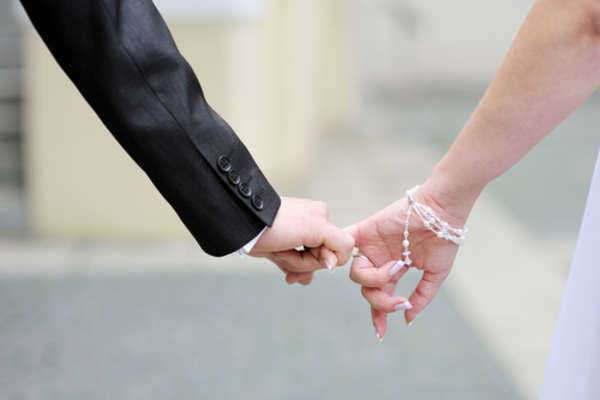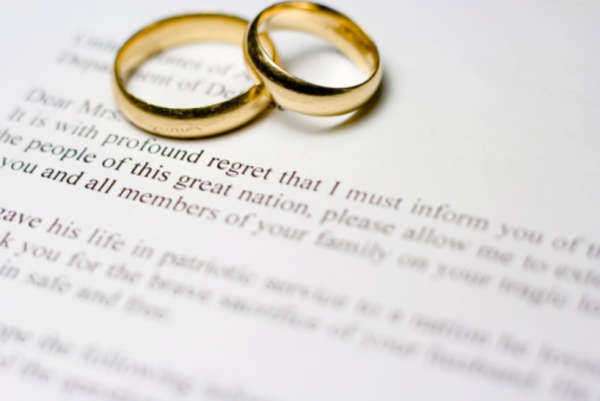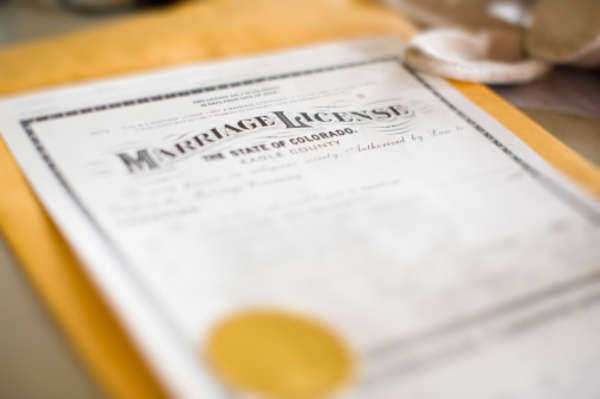New York Strikes down Defense of Marriage Act

On June 26th, 2013, the United States Supreme Court made a historic ruling in favor of same-sex marriage. The court struck down a law known as the Defense of Marriage Act (DOMA), which had prohibited the federal government from recognizing same-sex marriages. This decision was the result of years of activism and legal battles by the LGBTQ+ community, and it marked a significant step forward in the fight for marriage equality.
In this article, we will explore the history of the Defense of Marriage Act, the legal challenges against it, and the implications of its overturning. We will also look at the current legal status of same-sex marriage in the United States and around the world.
What is the Defense of Marriage Act?
The Defense of Marriage Act, also known as DOMA, was a federal law that was signed into law by President Bill Clinton in 1996. Its primary purpose was to define marriage as a legal union between one man and one woman, and to prevent the federal government from recognizing same-sex marriages.
Under DOMA, same-sex couples were denied access to a range of federal benefits that were available to opposite-sex couples, including Social Security survivor benefits, joint tax filings, and immigration rights. This law also gave states the right to refuse to recognize same-sex marriages performed in other states.
DOMA was a controversial law from the start, and many LGBTQ+ activists and allies saw it as discriminatory and unconstitutional. Advocates argued that denying same-sex couples access to federal benefits was a violation of their civil rights and an affront to the principles of equality and fairness.
Legal Challenges Against DOMA
Over the years, there were many legal challenges against the Defense of Marriage Act. LGBTQ+ activists and civil rights organizations filed lawsuits in federal courts across the country, arguing that DOMA was unconstitutional and violated the rights of same-sex couples.
One of the most prominent legal challenges against DOMA was United States v. Windsor, which was decided by the U.S. Supreme Court in 2013. The case centered around Edie Windsor, a woman who had been married to her same-sex partner in Canada. When her partner died, Windsor was denied access to the federal estate tax exemption that is available to opposite-sex spouses.
Windsor sued the federal government, arguing that DOMA was unconstitutional because it denied same-sex couples access to federal benefits that were available to opposite-sex couples. The case made its way to the Supreme Court, which ruled in Windsor’s favor and struck down Section 3 of DOMA, which defined marriage as a legal union between one man and one woman.
The Court’s Decision
In its decision, the Supreme Court declared that DOMA violated the principles of equal protection under the law, as enshrined in the Constitution’s Fifth Amendment. The Court stated that denying same-sex couples access to federal benefits that were available to opposite-sex couples was discriminatory and unjust.
The ruling in United States v. Windsor was a monumental victory for the LGBTQ+ community and marked a significant step forward in the fight for marriage equality. The decision paved the way for further legal challenges against state bans on same-sex marriage, and it set the stage for the eventual legalization of same-sex marriage nationwide.
Current Legal Status of Same-Sex Marriage
Since the Supreme Court’s decision in United States v. Windsor, there have been many legal developments related to same-sex marriage. In 2015, the Supreme Court issued another landmark ruling in Obergefell v. Hodges, in which it declared that same-sex couples have the constitutional right to marry.
The Obergefell decision overturned state bans on same-sex marriage and made it legal for same-sex couples to marry in all 50 states. This decision marked a historical victory for the LGBTQ+ community and a significant step forward in the struggle for equal rights.
However, the struggle for equal rights across the United States is far from over. Despite the Supreme Court’s ruling, LGBTQ+ people face ongoing discrimination in many areas of life. In many states, it is still legal for employers to fire someone for being LGBTQ+, and transgender people face barriers to accessing basic healthcare.
Additionally, there are continued efforts to restrict the rights of LGBTQ+ people, including attempts to pass so-called “religious freedom” laws that would allow businesses and individuals to discriminate against LGBTQ+ people on religious grounds.
International Developments
Around the world, there have also been many developments related to LGBTQ+ rights and same-sex marriage. In 2001, the Netherlands became the first country in the world to legalize same-sex marriage. Since then, many other countries have followed suit, including Canada, Spain, South Africa, and most recently Taiwan in 2019.
However, in many parts of the world, LGBTQ+ people still face discrimination, persecution, and violence. In some countries, same-sex marriage is not recognized, and LGBTQ+ people are criminalized. In several countries, including Russia and Chechnya, individuals have been subjected to torture and imprisonment for their sexual orientation or gender identity.
Conclusion
The United States Supreme Court’s decision to strike down the Defense of Marriage Act in 2013 was a landmark victory for the LGBTQ+ community. The ruling paved the way for further legal challenges against state bans on same-sex marriage and set in motion a series of events that eventually led to the legalization of same-sex marriage nationwide.
However, while the legal landscape has improved for LGBTQ+ people over the past decade, there is still much work to be done to achieve full equality. Discrimination and persecution of LGBTQ+ people continue to occur, both in the United States and around the world.
It is important to continue to fight for equal rights and to support LGBTQ+ organizations and individuals. Ultimately, the struggle for equality must continue until every person, regardless of sexual orientation or gender identity, is treated with dignity, respect, and equality under the law.
On October 18, 2012, the New York Federal Appeals Court for the Second Circuit ruled that the Defense of Marriage Act (DOMA) is unconstitutional. A decision in a lower court ruled 2-1 that the Act is unconstitutional, and the decision was upheld by the Federal Appeals Court on Thursday.
In Windsor v. United States, the court ruled in favor of Edith Windsor, who is 83 years of age and a lesbian. She was with her partner, Thea Clara Spyer, for 42 years and decided to sue the federal government after she was denied spousal deductions following Spyer’s death.
Windsor owed $363,053 for inheritance taxes following Spyer’s death, and she decided to take action.
Although the state only recognized a marriage between partners of the opposite sex at the time of Spyer’s death, a New York Court ruled in 2009 that foreign same-sex marriages are valid in the state. Windsor and Spyer married in 2007 in Toronto after that were together for 40 years, thus the state of New York was forced to recognize their marriage as valid.
On Thursday, the New York Court declared that the Defense of Marriage Act violated the equal protection clause in the Constitution, and Windsor does not have to pay inheritance tax.
During arguments, the court reasoned that even if the Act holds preservation of tradition, DOMA is not an appropriate way to manage the tradition. The court quoted the earlier findings in the district court: “because the decision of whether same-sex couples can marry is left to the states, DOMA does not, strictly speaking, ‘preserve’ the institution of marriage as one between a man and a woman.”
The decision in New York adds to the latest initiatives by states to give rights to same-sex couples. So far, Massachusetts, Connecticut, Iowa, Vermont, New Hampshire, New York and the District of Columbia give marriage licenses to same-sex couples. Five other states give similar rights in both same-sex unions and marriages: Delaware, Hawaii, Illinois, New Jersey, and Rhode Island.
Windsor v. United States will ultimately be decided by the United States Supreme Court.
Source: 2nd U.S. Circuit Court of Appeals


















